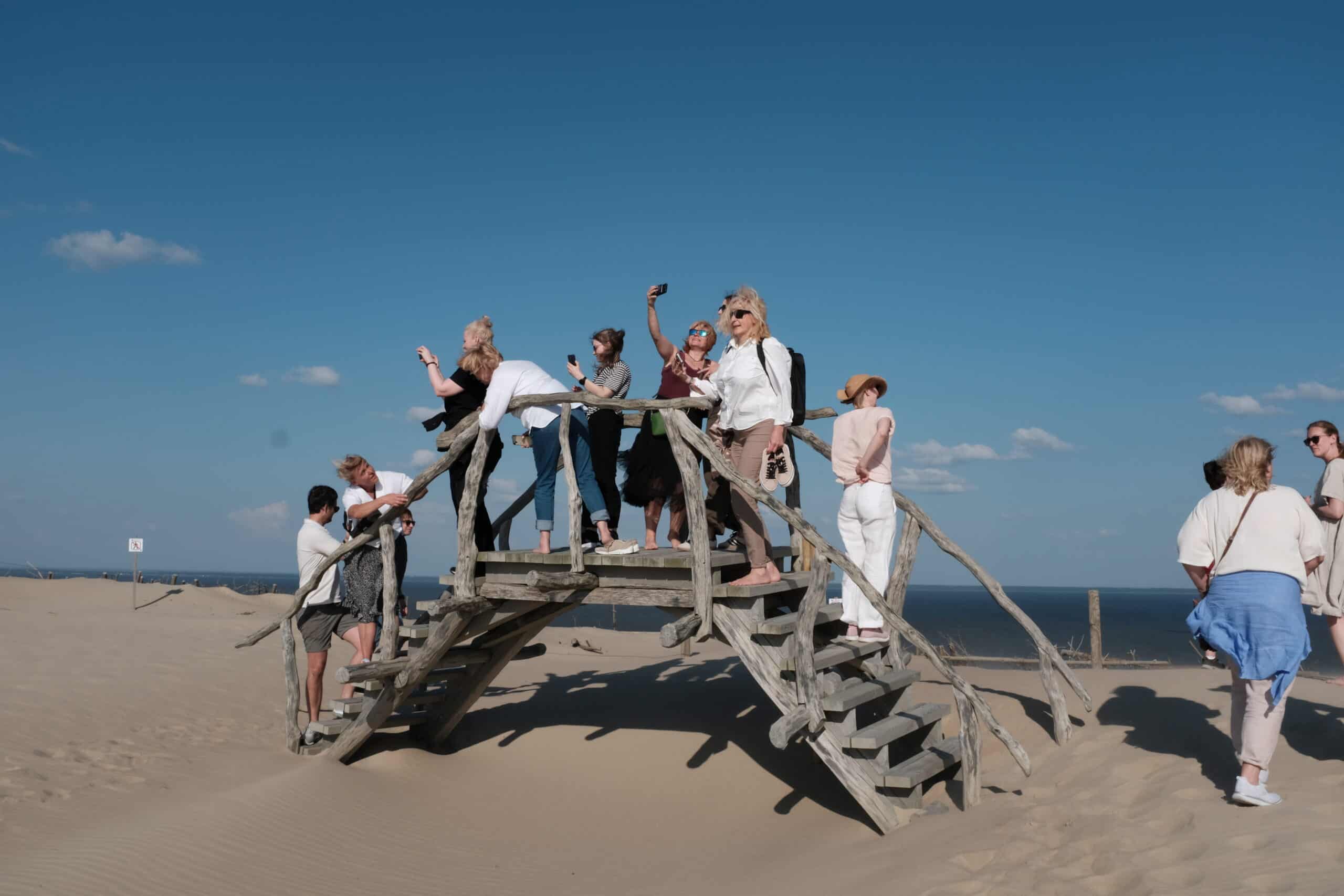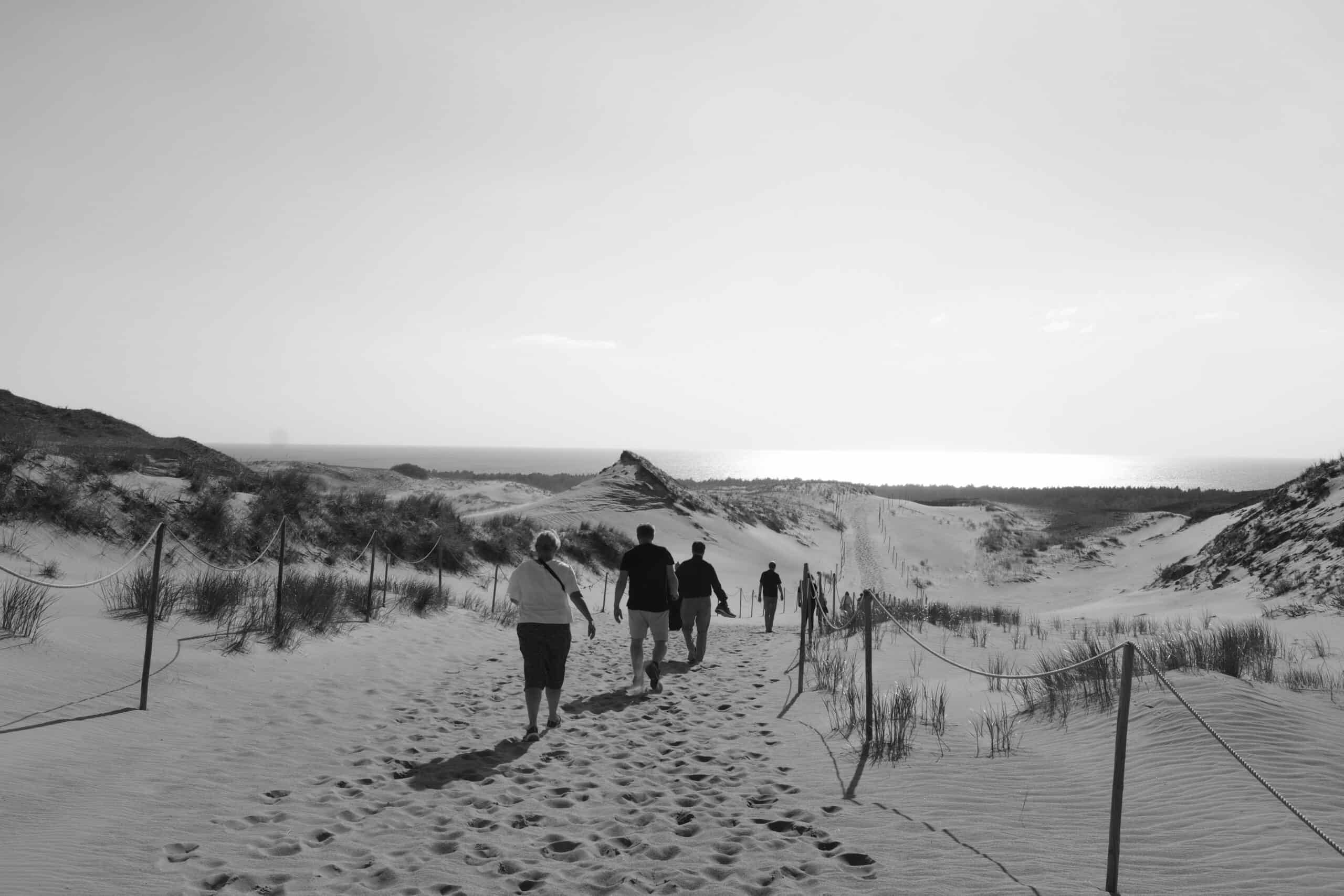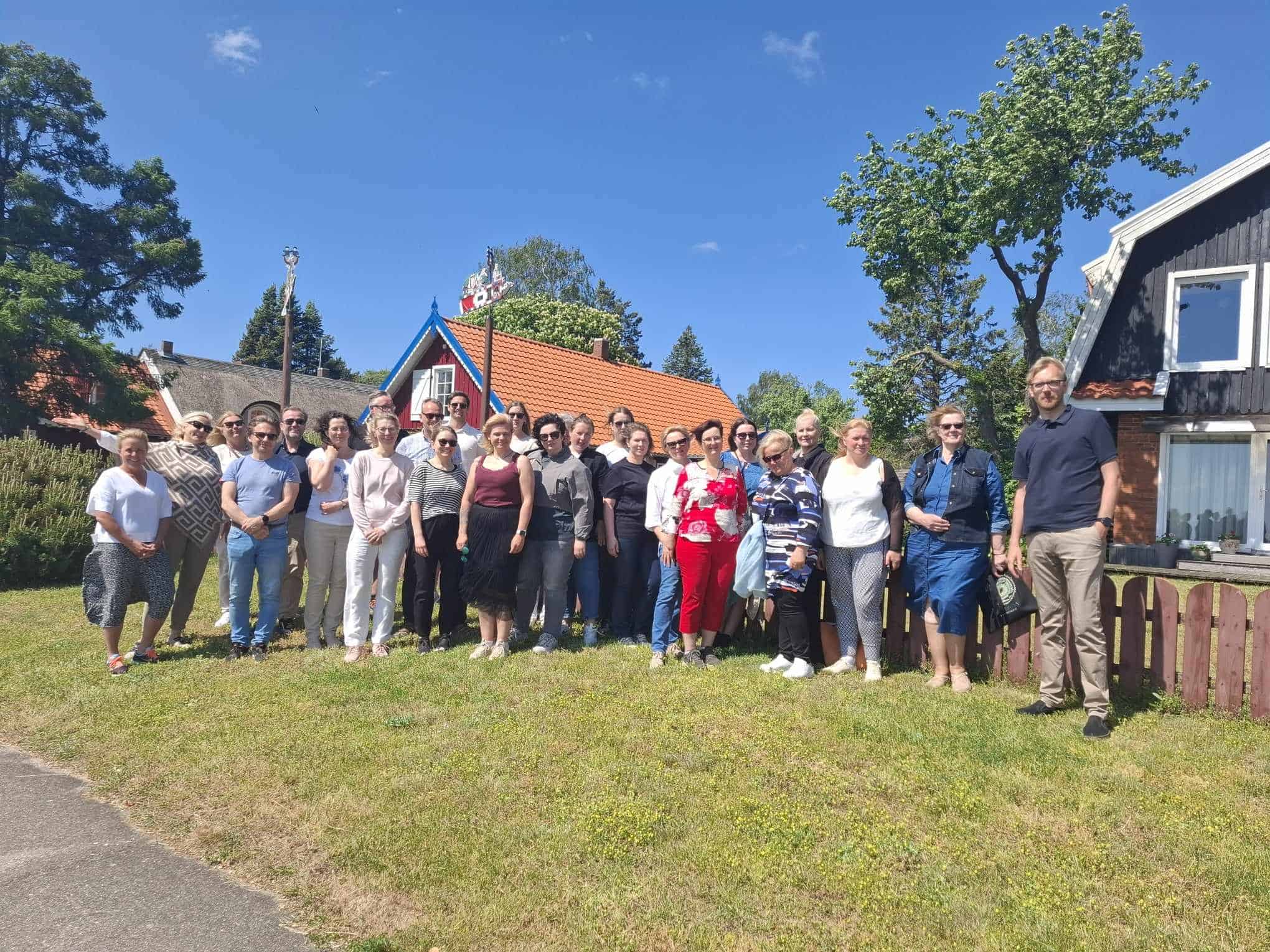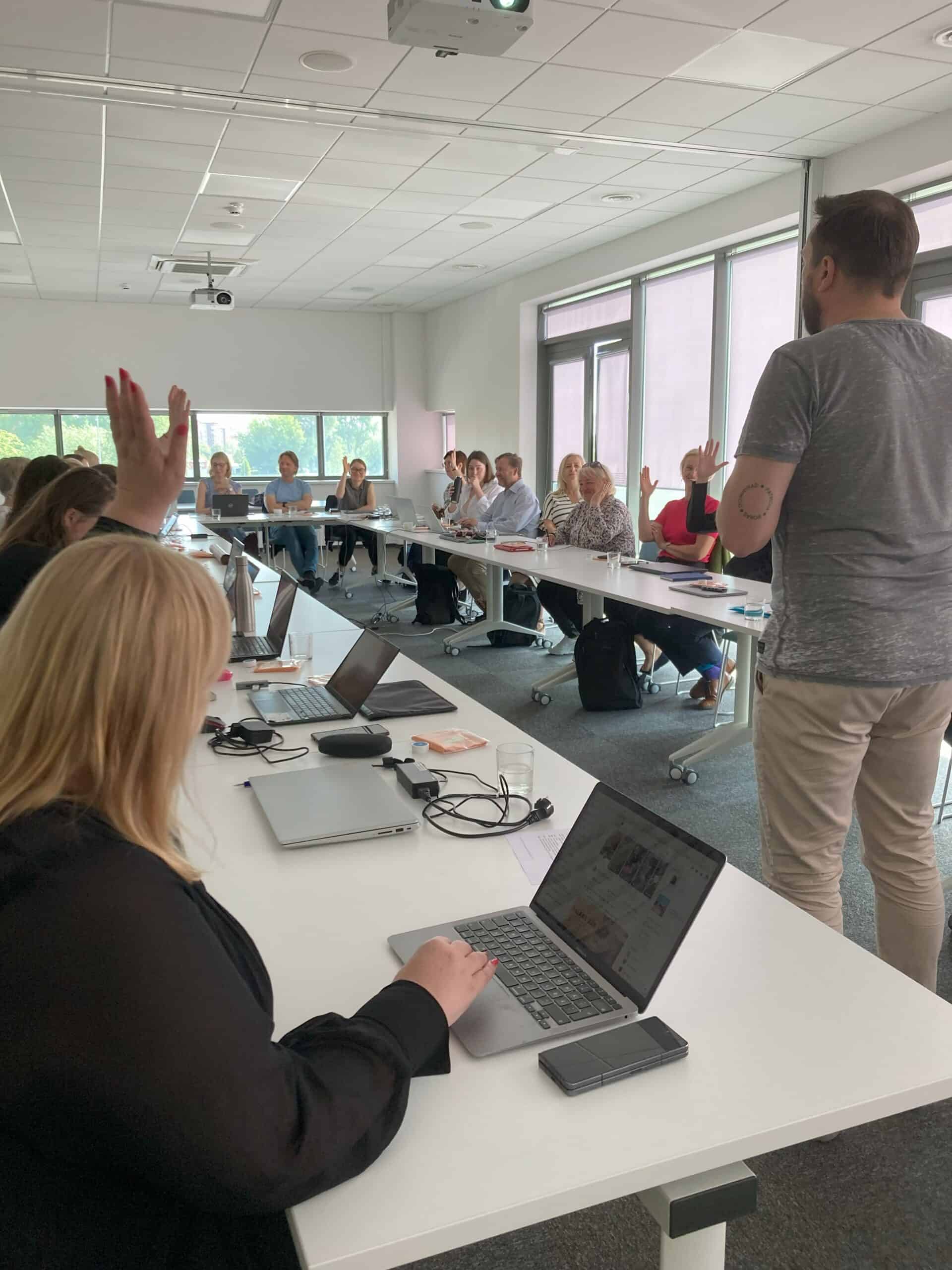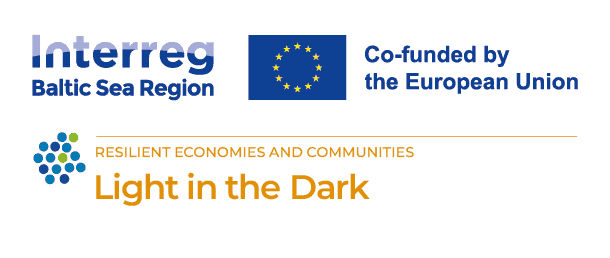
Light in the Dark partner meeting in Klaipeda, Lithuania
03 June 2024
The quote above catches the essence of the project Light in the Dark .
When the eleven project partners met in Klaipeda, Lithuania between May 21-23, 2024, the lushness of Klaipeda was pronounced with high temperatures, and we could sense the upcoming summer season. It seemed, however, that the warm temperatures were ahead of the tourism entrepreneurs, and summer cafés and ice cream parlors were not yet open. This fact is an important issue in the tourism industry and matches with the Light in the Dark project, the aim of which is to develop off-season experiences.
A face-to-face project meeting felt liberating after months of online meetings. Project Manager at Active Citizens Marius Ulozas kicked off the meeting by talking about how to build alliances and tourism ecosystems and aspired for the project partners to understand that we are not alone, and by connecting as individuals and collaborating as professionals, we will be able to achieve the objectives of this project.
The team of Klaipeda University presented the results of the Visitor Analysis with 5000 respondents from nine different countries. It is important for the project to identify the travelers who will be willing to visit the Northern Baltic Sea Region off-season. Nature was identified as the main motive for travelling among all tourist groups. The team of Åland University of Applied Sciences presented the results from the Challenge Inventory study among SMEs in the Northern Baltic Sea Region. Based on the report it was possible to identify four main groups of tourism entrepreneurs. Both of these surveys will be published at an open webinar Challenges and possibilities for low season tourism in the Baltic Sea Region on the 10.9. Reserve your place on this link.
As one of the objectives of the project is to develop new experiences for the dark season in Northern Europe, an ideation workshop was organized to agree upon what experiences should be in focus. The participants were divided into five groups and several groups identified experiences related to local lifestyle and nature experiences as the ones with the most potential.
The second day the hosts arranged a day excursion to Curonian Spit, a UNESCO World Heritage Site. The peninsula is a unique, vulnerable, sandy, and wooded cultural landscape on a coastal spit with small lagoons, a short ferry ride from the mainland.
Angelina Ivanov and Eglė Baltranaitė from project partner Nida Culture and Tourism Information centre “Agila” guided us through the beautiful scenery. The blend of personal storytelling and sharing of facts provided the group with insights into the history and contemporary issues of the area.
A curiosity of this spit is the existence of amber and a tourism experience in the form of Amber hunting had been presented in the workshop the previous day. A visit to Mizgiriai Amber Museum in Nida deepened the understanding of this unique fossilised tree resin and the possibilities to make use of amber in this project. This private museum is entirely funded by the owners and an important service in the low season when indoor attractions are otherwise lacking.
The main draw of the Curonian Spit is the National Park and Park Director and LitD steering committee member, Lina Diksaite, guided the group into the sand dunes.
This day provided the participants with plenty of opportunities to discuss informally, both achievements so far, possible issues as well as future collaborations. Combining tourist sightseeing with informal networking was a brilliant way for the project partners to hold informal discussions and to get know each other. This is an important part of project communication, which is impossible to facilitate so effectively by online meetings.
The last morning was spent looking to the future and beginning to plan the transnational experience pilots in all five countries in 2025. One part of the project looked at coordinating the project’s communication activities on both project and partner level. Sharing the project group’s diversity and expertise is one of the most valuable elements of Interreg projects.
The team of Klaipeda University, Rasa Rupulevičienė, Prof. Dr. Diana Šaparnienė, and Dr. Daumantas Bočkus did a wonderful job hosting this meeting. The days were intense and long, yet not stressful. As an extra add-on, the project meeting became a culinary trip. The participants had opportunities to taste many local delicacies, ranging from potatoes and fish in different forms to delicate and tasty biscuits and cakes.






